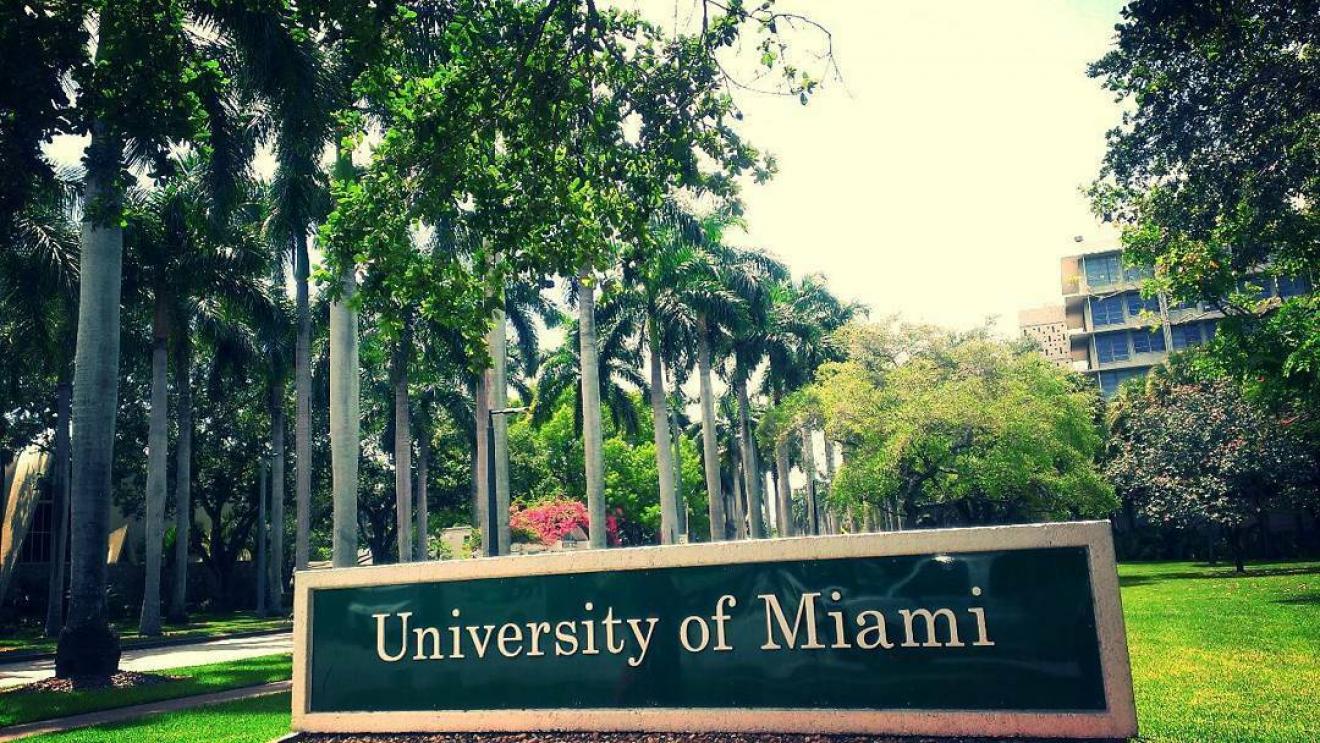Best Human Resources Management/personnel Administration colleges in the U.S. 2025
A degree in human resource management provides an opportunity for students to work in different aspects of attracting, developing, and retaining talent within a workforce. The human resources degree ranges in levels from an associate degree to a graduate-level degree, either through a Master’s of Business Administration or Master’s of Public Administration program.
Some universities offer specific human resources degrees, while others may have it available as a concentration in communication, business, or other professional degree programs. While studying for this degree, students will take courses in areas such as business communications, management theory, and strategic human resources management. There are many academic theories about the best ways to manage personnel and structure organizations, and students will be able to compare and recognize the different ways organizations operate. Human Resource professionals have important roles within a business, such as hiring, employee benefits, training, and recruiting.
Click Here to See the Best Colleges in the USBest Human Resources Management/personnel Administration colleges in the U.S. for 2025
Cornell University offers 1 Human Resources Management/Personnel Administration, General degree programs. It's a very large, private not-for-profit, four-year university in a small city. In 2022, 27 Human Resources Management/Personnel Administration, General students graduated with students earning 27 Master's degrees.

Washington University in St Louis offers 3 Human Resources Management/Personnel Administration, General degree programs. It's a large, private not-for-profit, four-year university in a large suburb. In 2022, 57 Human Resources Management/Personnel Administration, General students graduated with students earning 48 Bachelor's degrees, 7 Master's degrees, and 2 Certificates.

University of Miami offers 1 Human Resources Management/Personnel Administration, General degree programs. It's a large, private not-for-profit, four-year university in a small city. In 2022, 9 Human Resources Management/Personnel Administration, General students graduated with students earning 9 Bachelor's degrees.

University of Southern California offers 2 Human Resources Management/Personnel Administration, General degree programs. It's a very large, private not-for-profit, four-year university in a large city. In 2022, 218 Human Resources Management/Personnel Administration, General students graduated with students earning 218 Master's degrees.

University of North Carolina at Chapel Hill offers 1 Human Resources Management/Personnel Administration, General degree programs. It's a very large, public, four-year university in a small city. In 2022, 81 Human Resources Management/Personnel Administration, General students graduated with students earning 81 Bachelor's degrees.
Tulane University of Louisiana offers 3 Human Resources Management/Personnel Administration, General degree programs. It's a large, private not-for-profit, four-year university in a large city.

New York University offers 2 Human Resources Management/Personnel Administration, General degree programs. It's a very large, private not-for-profit, four-year university in a large city. In 2022, 66 Human Resources Management/Personnel Administration, General students graduated with students earning 66 Master's degrees.

Texas A & M University-College Station offers 1 Human Resources Management/Personnel Administration, General degree programs. It's a very large, public, four-year university in a midsize city. In 2022, 40 Human Resources Management/Personnel Administration, General students graduated with students earning 40 Master's degrees.
University of Connecticut offers 2 Human Resources Management/Personnel Administration, General degree programs. It's a very large, public, four-year university in a large suburb. In 2022, 43 Human Resources Management/Personnel Administration, General students graduated with students earning 35 Master's degrees, and 8 Certificates.
The University of Texas at Dallas offers 1 Human Resources Management/Personnel Administration, General degree programs. It's a very large, public, four-year university in a midsize city. In 2022, 27 Human Resources Management/Personnel Administration, General students graduated with students earning 27 Bachelor's degrees.
Find local colleges with Human Resources Management/personnel Administration majors in the U.S.
Human Resources Management/personnel Administration Degree Overview
Pros and Cons of Pursuing a Human Resources Degree
Before pursuing an HR degree, it pays to weigh the negatives and positives.
Pros
1. Rewarding career - HR professionals make a difference both to the whole organization and to individuals who work there. If you like influencing company culture, interacting with others, and helping employees progress along their career paths, human resources can provide a great deal of job satisfaction.
2. Career advancement - If you’re interested in progressing up the ladder in an HR department, your employer may require an HR degree. Getting one demonstrates your commitment to the discipline and signifies a strong foundation in relevant HR topics.
3. Attractive salary - Earning an HR degree qualifies the recipient for a greater range of well-paying jobs in the discipline.
Cons
1. Time - Being a student involves devoting an appropriate amount of time to studying and taking classes. People with a wealth of other obligations may find it difficult to add school to the mix.
2. Cost - While many students look at pursuing an HR degree as an investment in their future, the fact remains that shelling out money for tuition, books, and the like can pose a financial hardship.
3. Narrowness - An HR degree sets up the recipient for a career in human resources. Undergraduates who aren’t sure if that career route truly suits their interests may want to consider majoring in a broader discipline, like management or marketing, and pursuing graduate studies in HR at a later date if they discover they want to make that their career path.
Bachelor's Degree in Human Resources Management/personnel Administration
Like other standard undergraduate programs of about 120 credits, earning a bachelor’s degree in human resources takes most students four years of full-time study. Accelerated programs, credit from Advanced Placement Exams, attending summer school, or already possessing an associate degree can reduce this time.
Realize that not all classes in an undergraduate program in human resources are devoted to HR topics. Students must fulfill general education requirements along the way, as well.
How Much Does It Cost to Earn a Bachelor's in HR Degree?
Various factors influence how much it costs to earn a human resources degree, and institutions vary widely in what they charge as well as in how much financial aid they offer.
Attending a public university in your state of residency often helps to keep expenses down. Likewise, some students take courses, like general education credits, at a community college before transferring to a four-year program to save money, especially if they can live at home instead of paying for room and board.
Data from U.S. News and World Report shows the average tuition and fees per year to earn a bachelor’s degree as:
- Public, in-state: $9,687
- Public, out-of-state: $21,184
- Private, $35,087
Some students opt to earn an online human resources degree as a way to save money by eliminating housing and transportation costs. An online human resources bachelor’s degree runs anywhere from $43,000-$64,000 in total tuition ($360-$500 per credit).
Accelerated study programs offered by some institutions may help with saving money by enabling students to take as many courses as they want at a given time for one, flat price.
Master's Degree in Human Resources Management/personnel Administration
Earning a Master’s in HR requires 36-48 credits, depending on the school. This translates to 1-2 years of full-time study. Many people seeking a graduate HR degree are adult learners with career and family obligations. They often opt for part-time enrollment, which increases the length to 3 or more years. Part-time students may find online human resources degrees attractive because of their flexible scheduling options.
How Much Does It Cost to Earn a Master's in HR Degree?
Tuition and fees for master’s HR programs likewise vary considerably. For instance, here are the fees at the previously mentioned master’s program in human resources and industrial relations at the University of Minnesota:
- Roughly $10,540 per semester (plus fees) for full-time study for residents
- Roughly $17,490 (plus fees) per semester for non-residents
- Whether a resident or non-resident, part-time students pay $1,066 per credit (and fees based on the number of credits taken).
Capella University, on the other hand, has these tuition ranges for their 3 master’s programs: $2,645-$2,900 per 12-week billing session for FlexPath, and $745-$830 per credit for GuidedPath.
Doctoral Degree in Human Resources Management/personnel Administration
Please note that MBA programs with an emphasis in HR require 48-60 credits. Such a degree typically takes longer to complete than a Master’s in Human Resources.
What Can I Do with a Degree in Human Resources Management/personnel Administration?
Earning an HR degree demonstrates to potential employers that you have the training necessary to be a valuable part of their human resources team. HR degree programs provide a solid foundation in critical areas such as business, communications, and human relations.
Many schools offer human resources degree programs on-campus, online, or through hybrid arrangements. An undergraduate HR degree opens doors to basic positions. People aspiring to leadership positions or human resources jobs with greater responsibility find that a graduate degree increases their options and the strength of their candidacy.
Human Resources Management/personnel Administration Career and Salary Overview
Human Resources Career Salary
According to PayScale.com, the average salary for an HR professional is $57,862. Realize, though, that this figure encompasses a variety of positions, experience levels, and educational attainments.
Breaking things down by degree, PayScale reports the following:
- Associate Degree in Human Resources Management, average yearly salary $53,000
- Bachelor’s Degree in Human Resources, average yearly salary $54,000
- Master’s Degree in Human Resources, average yearly salary $65,000
- MBA in Human Resources Management, average yearly salary $69,000
Aspiring HR professionals also may be interested in seeing averages for various positions. Here are BLS figures for some of the discipline’s most common careers:
- Human resources assistant, average annual salary $44,170
- Human resources specialists, median annual salary $63,490
- Compensation, benefits, and job analysis specialists, median annual salary $67,190
- Human resources managers, median annual salary $121,220
Some common managerial titles include:
HR manager
- Median salary in 2020: $121,220
- Projected job growth from 2020-2030: 9%
Compensation and benefits manager
- Median salary in 2020: $125,130
- Projected job growth from 2020-2030: 4%
Training and development manager
- Median salary in 2020: $115,640
- Projected job growth from 2020-2030: 11%
(All statistics courtesy of the BLS.)
Human Resources Management/personnel Administration FAQ
List of all Human Resources Management/personnel Administration colleges in the U.S.
| School | Average Tuition | Student Teacher Ratio | Enrolled Students | |
|---|---|---|---|---|

|
Cornell University Ithaca, NY | 14 : 1 | 25,898 | |

|
Washington University in St Louis Saint Louis, MO | 16 : 1 | 17,012 | |

|
University of Miami Coral Gables, FL | 17 : 1 | 19,402 | |

|
University of Southern California Los Angeles, CA | 23 : 1 | 48,945 | |

|
University of North Carolina at Chapel Hill Chapel Hill, NC | 19 : 1 | 31,705 | |
Article Sources
- https://carlsonschool.umn.edu/degrees/master-arts-human-resources-industrial-relations
- https://www.capella.edu/online-degrees/bachelors-human-resource-management/
- https://www.webster.edu/business-and-technology/academics/human-resources-development.php
- https://smlr.rutgers.edu/academic-programs/areas-study/human-resource-management-hrm
- https://www.ou.edu/cas/humanrelations/graduate/programs/hrc










